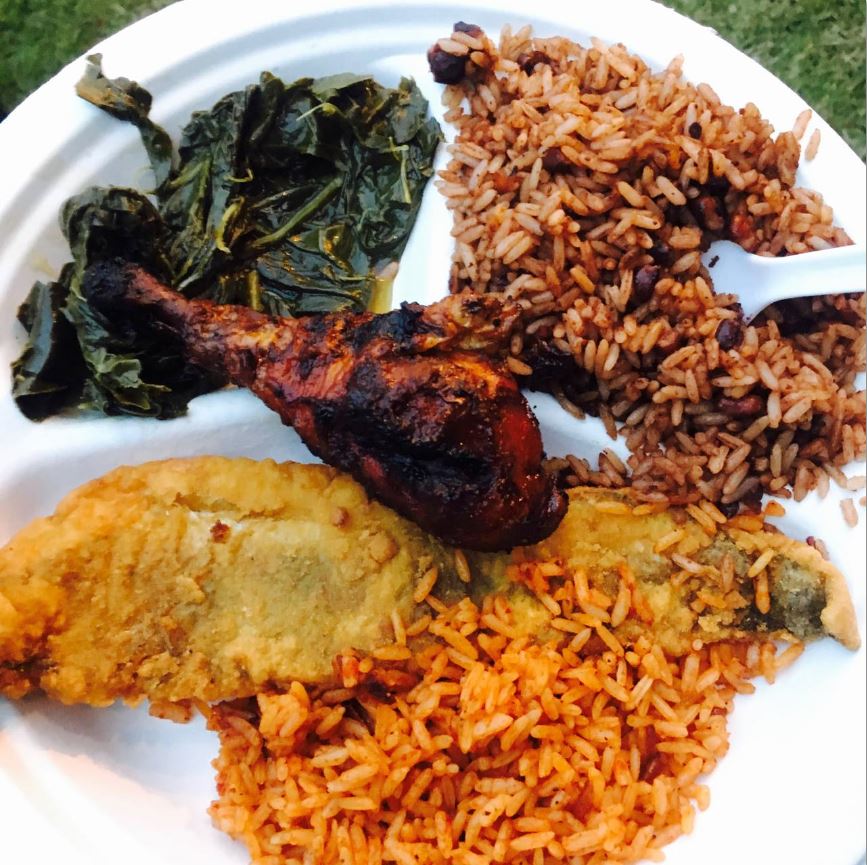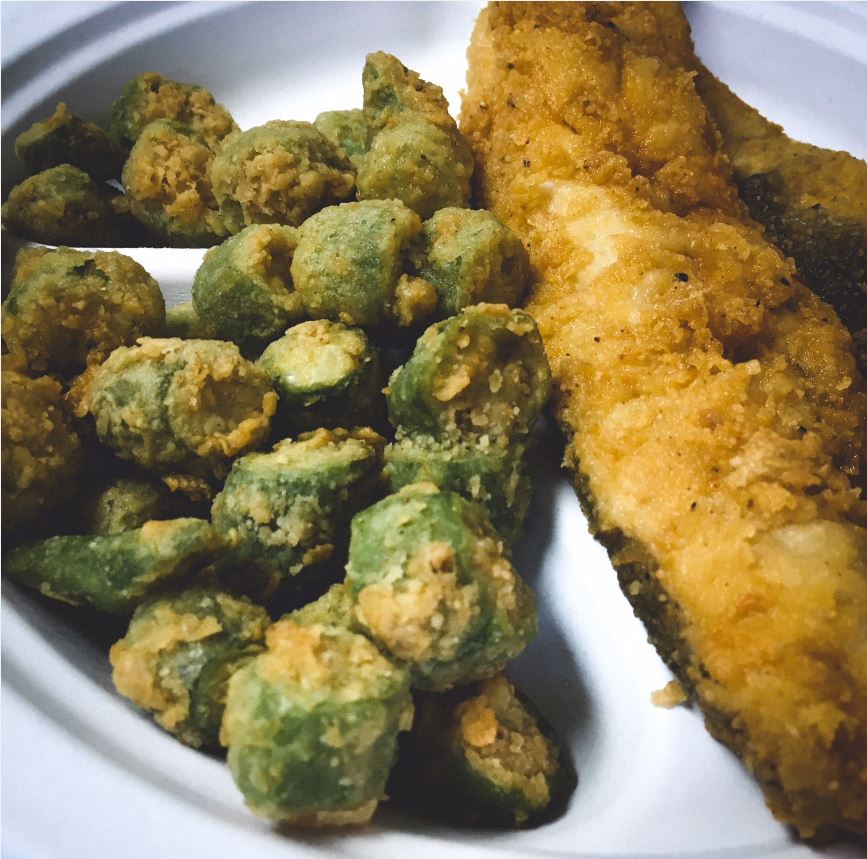
Gullah Geechee foodways provide us all with a doorway into understanding the Gullah Geechee because food carries both culture and history, as audiences learned at our recent talk with Chef Charlotte Jenkins at the Hurd/St. Andrews Library. Her cookbook, "Gullah Cuisine: By land and by sea" places her culinary story against the backdrop of her childhood in the Gullah Geechee community of Ten Mile, one of the many historic, Gullah Geechee freedmen's communities near Mt. Pleasant. It is no surprise that many Gullah Geechee chefs are often keen local historians eager to introduce audiences to larger aspects of Gullah Geechee culture.
Chef Sallie-Ann Robinson of Daufuskie Island has authored both a cookbook, "Gullah home cooking the Daufuskie way: smokin' joe butter beans, ol 'fuskie fried crab rice, stick-bus blackberry dumpling, and other Sea Island favorites" as well as history of her home, "Daufuskie Island." Readers of all of these books will find that rice is a common thread that links all of these works and that is a theme that will take interested readers back to what was known as the Rice Coast of West African - the home of many of the ancestors of the Gullah Geechee people.

In "Black Rice: The African Origins of Rice Cultivation in the Americas" by Dr. Judith Carney and "Deep Roots: Rice Farmers in West African and the African Diaspora" by Dr. Edda Fields-Black, these two leading historians describe the important role of West Africans who bought with them the technical and managerial expertise needed to successfully, commercially cultivate rice in the Carolinas.
The agricultural achievements of these enslaved Africans are all the more remarkable in light of the dangerous conditions they endured as they worked swampy mosquito-filled rice fields that favored diseases such as malaria, cholera, and yellow fever. Many Africans from the Rice Coast possessed a degree of immunity to malaria that Europeans lacked. The European planters were often absentee owners who spent the period from early May to late October in the pinelands and the winter social season in their city homes. The result was that many of the plantations were highly “Africanized” and the work of rice production was frequently managed by the enslaved themselves under the direction of a white overseer and a black driver. The ancestors of the Gullah Geechee arrived into this new world with a diverse range of cultural, linguistic, and spiritual practices. Because many of the transplanted African peoples did not share the same cultural practices, eventually common institutions and a synthesized new creole (but still very West African) culture and language – now known as Gullah Geechee – emerged on these isolated island and coastal plantations.
Allen Mitchell grew up Gullah Geechee on Wadmalaw Island and his memoir, "Wadmalaw Island: Leaving Traditional Roots Behind" provides a glimpse into the life of Gullah Geechee communities on the island which today still has many long-standing Gullah Geechee communities descended from the Africans who were enslaved on the island's many plantation.

In the next few months the library is offering a number of programs and events in conjunction with the Gullah Geechee Cultural Heritage Corridor Commission that will help enrich your understanding of Gullah Geechee culture.
Gullah Geechee Documentary Film Festival
Saturday, April 27 from 2-4 p.m.
John’s Island Regional Library
Save-the-date for a free series of documentary films that showcase the power and strength of Gullah Geechee culture. Stay after the films to participate in a Q&A session.
Chef Kevin Mitchell Presents “Black Hands to White Mouths”
Saturday, May 11 from 2-4 p.m.
John’s Island Regional Library
Chef Kevin Mitchell will discuss his research of Charleston’s enslaved and free African-American cooks. “From Black Hands to White Mouths: Charleston’s Freed and Enslaved Cooks and their Influence on the Food of the South” is a profoundly important, historical work that reclaims and restores the vital role that black cooks and African foodways had in shaping the culinary heritage of Charleston and our nation.
“Combee”: Freedom-Seekers of the Combahee River Raid
Saturday, May 18 from 2-4 p.m.
John’s Island Regional Library
Spend an afternoon with historian Dr. Edda Fields-Black, associate professor in the history department at Carnegie-Mellon University and a specialist in the trans-national migration of West African rice farmers, peasant farmers on the pre-colonial Upper Guinea Coast, and enslaved laborers on rice plantations in the South Carolina and Georgia Lowcountry.
